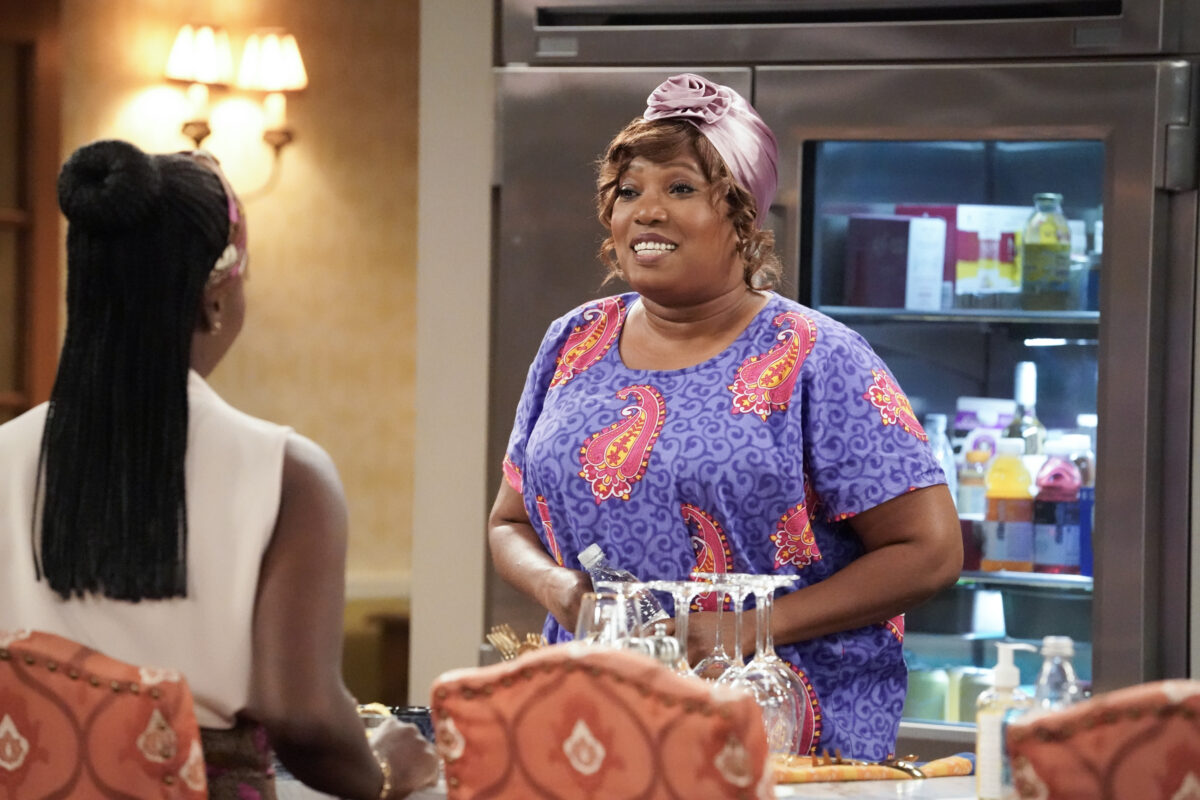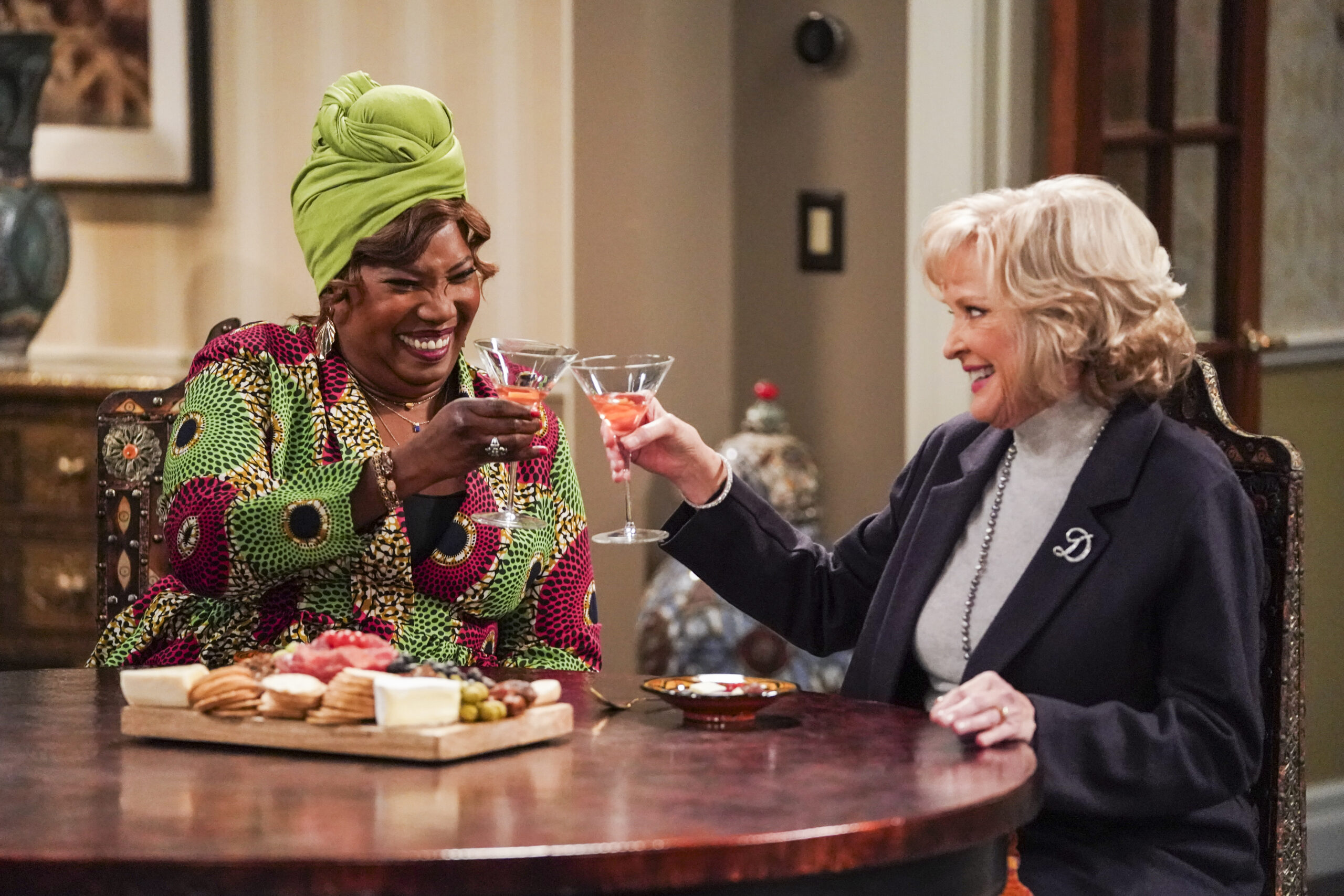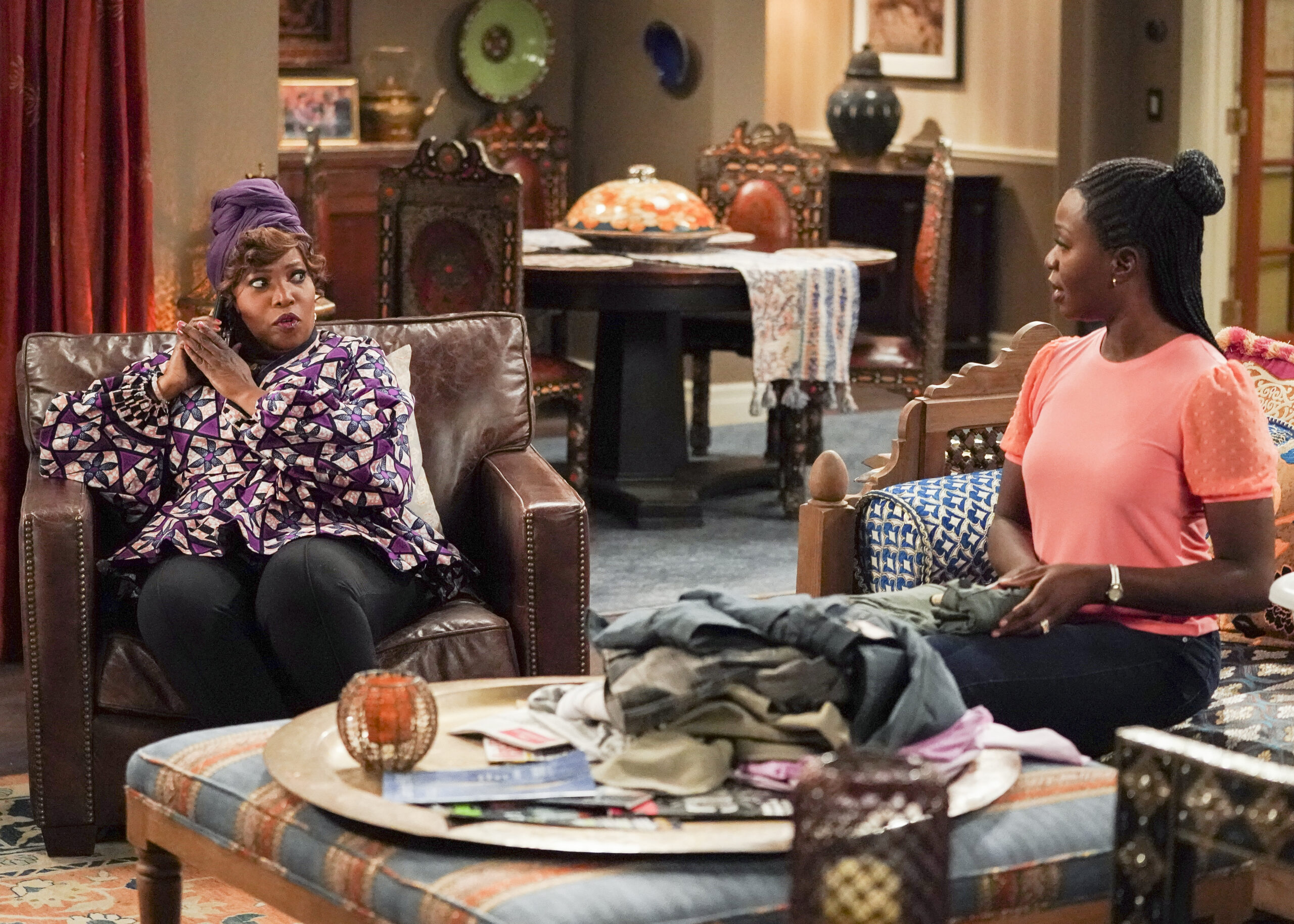
Especially when you’re from Baltimore, graduating from high school with someone somehow makes you feel connected to them for life. Even if you literally haven’t spoken since (in this case) the waning years of the Reagan administration.
So it is with myself and Saidah Arrika Ekulona. Saidah and I were friends at Owings Mills High School back in the ’80s. We had many classes together and lots of mutual friends, but we weren’t so close that we kept in touch over the years.
Years after graduation, I started seeing Saidah—as did many others—on TV. First as a character actor in episodes of Law & Order and Law & Order SVU, and later in recurring roles on shows such as Better Call Saul and the TV adaptation of A League of Their Own. Most recently, audiences have become familiar with her portrayal of Ebunoluwa, a mildly overbearing but lovable Nigerian mom on the CBS sitcom Bob Hearts Abishola. Other upcoming projects include roles in the films Life of Chuck and Amber Alert.
So how did a young woman who went to Owings Mills High School go from Baltimore County to some of the most iconic shows on American television? I asked Baltimore for the opportunity to reach out to Saidah to reconnect and find out.
When we talked, the actor’s strike had begun. She was spending time relaxing at her home in Los Angeles and taking the occasional road trip while contemplating what might come next. Now that the strike has ended, she will reprise her role as Ebunoluwa on the fifth and final season of Bob Hearts Abishola, which begins on Monday, February 12 on CBS and will conclude with the series finale on Monday, May 13.
Here’s a condensed and edited excerpt of our conversation:
Tell me about when you decided that you really wanted to become an actor.
Well, I had been acting since I was five. And when I was 10, I started going to the Arena Players summer program in Baltimore. I was there for a few years, and my father—I don’t know if you remember my father—he was a director, writer, and producer for Maryland Public Television. He also created industrials and training videos for companies like Jiffy Lube and banks, so I was around all kinds of productions from an early age.
How did your experience at Arena Players impact your early interests?
The summer program at Arena was kind of like what we saw on the TV show, Fame. It was a good training program. It was for at least two months and it was really wonderful. And it was an African American theater, as well.
Was that the spark for your career?
That and the work my dad does, because my dad would bring us in as extras. So, we’d be on set all the time.
What else do you remember learning from your dad as you were growing up in Baltimore?
I remember one production—there was a huge party scene. This was somewhere outdoors in Pikesville, and I think there were over 150 people. He didn’t have to raise his voice, but everybody listened to him. And I remember being really, really impressed. I also remember him teaching us how to look at everyone behind the camera, and the jobs that they all had. Like, this is the gofer, this is the electrician, this is the camera guy, this is the dolly guy. That’s where I learned a lot about a crew.
Also, whenever we’d watch television, and there was a blip, like, if a commercial started but then gets stuck or something, he’d be like, “Somebody’s getting fired. That’s somebody’s job.”
When did you start taking acting seriously as a potential career?
I went to Albright College [in Reading, Pennsylvania] and didn’t think about being a theater major—they didn’t have one. I was undeclared, and thought I’d become an English major. But the first class I took was a theater class on [American playwright] Edward Albee, taught by Dr. Lynn Morrow, who became my mentor. She cast me in this really intense play by Albee, The Man Who Had Three Arms, and she later informed me she wanted to start a theater program. She asked, “Would you like to do this with me?” and I said, “Sure.”
My parents were supportive, but they wanted me to have a backup plan and said, “Get an education minor.” And I said, “Uh-huh.” Then I hung up the phone and said to myself, “I’m not doing that.” I was all in, which was very frightening as the oldest child [of six.] My major was an independent study program in Theatre, African American Studies, and Women’s Studies.
How did your career build to the point where you started to land network TV roles? Was there a big break?
It happened over a long period of time. After grad school [at the University of Minnesota, where Ekulona earned an MFA in Acting], I was cast to play Cordelia in King Lear at the Guthrie Theatre, along with some other plays there. I moved to New York City after that, and started working in regional theater, where I played Bessie Delaney in Having Our Say at a few theaters [and performed in other shows.] So my focus was theater early on, but I will definitely tell you that Law & Order changed things for me.
How did you get on Law & Order? Do you remember the audition?
The first audition I had for Law & Order was in 1998. I was playing a Jamaican housewife. And the casting director stopped me in the middle and said, “No, no, no, that’s not you.” And I was like, “What?” And she said, “No, don’t worry, I’ll call you back.” I freaked out. But three months later, I got called in to audition for a male Indian doctor named Dr. Lakhmajara. It was me and five white men, and I booked the role [which producers ended up changing to a female doctor named Dr. Locke.]
It was great. Christopher Meloni and Mariska Hargitay were fantastic. And ironically, they were a lot of fun on that show, even though the subject matter is heavy. I had been doing so much New York theater, so it really helped me with “the build/arc of my career,” as I call it.
You appeared on Law & Order and Law & Order SVU more than five times. Ever as the same character?
Nope. Every time I’m a different person, that’s why you can only do it once a season. (Laughs.)
Well that’s acting right? Showing up as a different person each time…
That’s right! All the time. You need me to be a teacher now? I got you. A nurse? I got you. A lawyer? Bring it on.
You’ve played so many different characters. IMDB says 68 shows and movies. How do you prepare?
You’ve got to be curious and have good imagination. I think to myself, “What’s the backstory? What’s the history of this person? What are their relationships?” There’s a lot you have to ask in order to really understand why this character is who they are, why they’re saying what they’re saying, and who they’re saying it to. And the effect that it’s going to have, not just on their lives, but on the lives of everybody else in the piece.

Has there ever been a moment where you couldn’t believe who you got to work with?
Yeah, Robert DeNiro and Al Pacino [on the 2008 film, Righteous Kill]. I had a couple of scenes with both of them, and Brian Dennehy, and I got to cuss them out. (Laughs). I was the D.A. and they were cops. They approached something incorrectly and I told them how they messed up. It was great.
Any female actors who gave you goosebumps when you met them?
I met Meryl Streep backstage after a performance. We were doing a play called The American Daughter and she had done the original production, so she knew the play. And I treasure what she said to me. She said, “That was incredible.” The thing about her is that I was in a room full of people, and she went up to every single person. But when she came up to me, everyone else just disappeared. And then she went to talk to someone else, and everyone reappeared. She’s kind of magical.
I am a huge Breaking Bad and Better Call Saul fan. Tell me about working on Better Call Saul and working with Bob Odenkirk, what was that like?
Dude, It was awesome! I loved Breaking Bad. But Greg, I think that Better Call Saul is even better. I am so proud. I’m so happy I was on that show. Bob Odenkirk is wonderful. Really, really talented. There was a lot of secrecy and confidentiality around being on that show. You had to sign an NDA and when I shot it, I couldn’t even tell my mother where I was going and how long I’d be there.
Let’s talk about Bob Hearts Abishola. It’s a CBS show created by comedy legend Chuck Lorre about a white American man who falls in love with a Nigerian woman. You play Abishola’s mom, Ebunoluwa. How would you describe her?
She’s a domineering and loving Nigerian mother who came to America to visit her daughter and decided to stay. She’s human. We’re not all this one thing. We have the ability to surprise. And the thing that I’m aware of is that she’s from another culture. I get to explore all of that. For example, I don’t always comfort Abishola the way an American mom might. Sometimes, it’s like, I grab her hand, and I tell her “I believe in you.” And that’s enough.

Did you talk to your mom for advice on how to play her?
My mom loves the show, but I didn’t go to her for advice on this role. I have for others. Like with A League of Their Own, I definitely asked my mother, “How do you let your child go?” I don’t know how parents do this, and she did it four times! My mom was very helpful. She said, “You have to figure it out. You have to do it no matter how much you don’t want to, and there will be an icky part in the middle where everyone is figuring it out. But you have to ride that out.”
Sounds a little like the conversation you had with your parents when you got to Albright…
Oh my goodness! Yeah, that was good. Exactly.
You have been named commencement speaker for your alma mater Albright College in May. What message do you hope to impart to the graduating class of 2024?
I’m so honored to be asked, and it’s overwhelming! Ultimately, I just want to impart some honest and grounded inspiration to them.